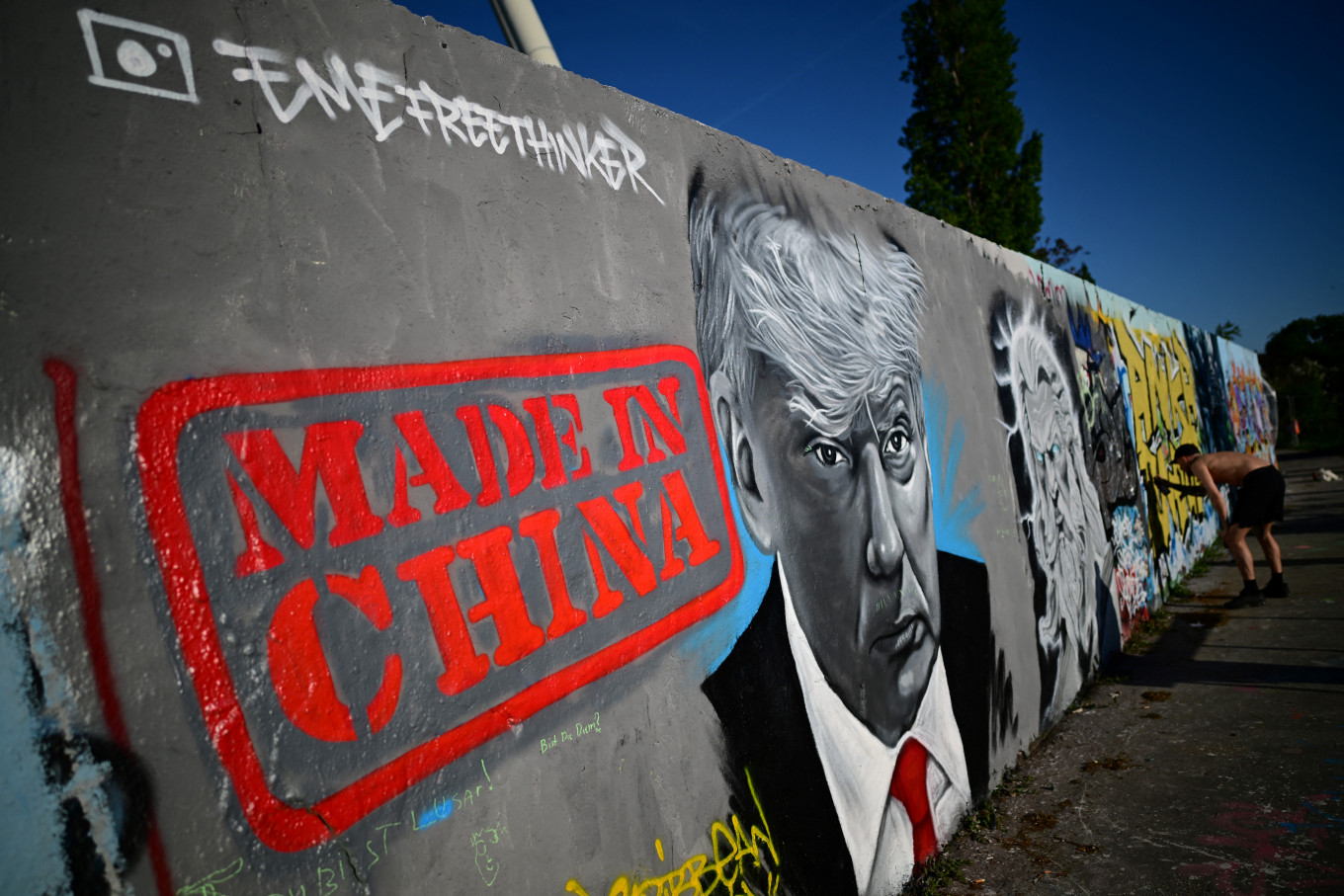Popular Reads
Top Results
Can't find what you're looking for?
View all search resultsPopular Reads
Top Results
Can't find what you're looking for?
View all search resultsSigh of relief, for now
While the Geneva agreement brings hope, it does not undo all the damage. Our global trade will never be what it used to be.
Change text size
Gift Premium Articles
to Anyone
A surprise trade deal between the United States and China on May 12 means a lot for emerging economies like Indonesia.
Having the US postpone overall tariffs it imposed on countries for 90 days since early April would mean little to global trade unless the US and China, the world’s two largest economies, stop hurting each other with tariffs.
Any trade escalation between the two would cause significant spillover to many, given that many countries are involved as part of the supply chain for both nations' industries, Indonesia included.Any turbulence would send shockwaves through our factories, our ports and ultimately, our workforce.
Moreover, if the US, the world's largest importer, stopped buying from China, the world's largest exporter, we can imagine the horror when Chinese producers flush their excess inventory to emerging economies as they rush to find alternate markets.
However, while the Geneva agreement brings hope, it does not undo all the damage. Our global trade will never be what it used to be.
Both countries still face some tariffs with a 30 percent rate on Chinese goods entering the US as well as a 10 percent levy for American goods coming into China, an improvement from the previous 125 percent.
Indonesia along with other emerging economies will still feel the pinch of these new baseline tariffs and there is no other option other than adapting to the new reality.
Things have largely remained uncertain as things would be subject to the outcome of US-China negotiation that is taking place through the next 90 days. Whether the two can come up with a real long-lasting deal is anyone’s guess.
Furthermore, the world has witnessed the erosion of an open and rules-based global trade system over the past years, which emerging countries, including Indonesia, have long depended on.
Protectionism, once the exception, is something we need to live with as an accepted norm of the contemporary global economic landscape. Economic nationalism is now reshaping the contours of international commerce, which is now more fragmented than ever before.
The US, in this case, has served as a notable leading example on what the future can hold. Since Trump took power for his second term, his tariffs have forced companies from other countries to pour billions of dollars of investments into the US in a maneuver which he hopes will bring jobs and factories back to US soil.
It shares similarities with what Indonesia has done in the past with a ban on the export of raw forms of its natural resources and a local content requirement, which the US and other Western economies have previously complained about for years.
Looking at what the US has done, it serves as a reminder for Indonesia and other emerging economies that they too must also consider protecting their own industries more actively.
This does not mean closing ourselves off from the world or a zero sum game. Like the US, investors need assurance that their investment in Indonesia will not go in vain and thus some policies to enforce domestic purchases and import controls are still a necessity.
However, we can agree that these measures should be temporary, only until local industries can level up to compete internationally. The government should create an environment where industries really see a need to improve, invest in technology and climb up the value chain instead of becoming complacent with the protectionist measures the country provides.
The US-China deal may pause trade hostilities that could shake the global economy, but it does not solve the structural rift between the two powers.
Future flare-ups are likely, and Indonesia must prepare accordingly. That means building resilience at home while advancing diplomacy abroad.
In the end, the trade deal gave the world a sigh of relief, but it marks the beginning of an uncertain futures that countries like Indonesia need to prepare for, with strategic thinking and anticipation of the worst possible outcomes.











